Whether black, green, yellow, or white, teas are a staple in most people's diets. Tea helps fight inflammation and strengthens the immune system to prevent lifestyle diseases. However, if you're new to brewing tea, you might wonder if it will worsen your acid reflux or damage your teeth.
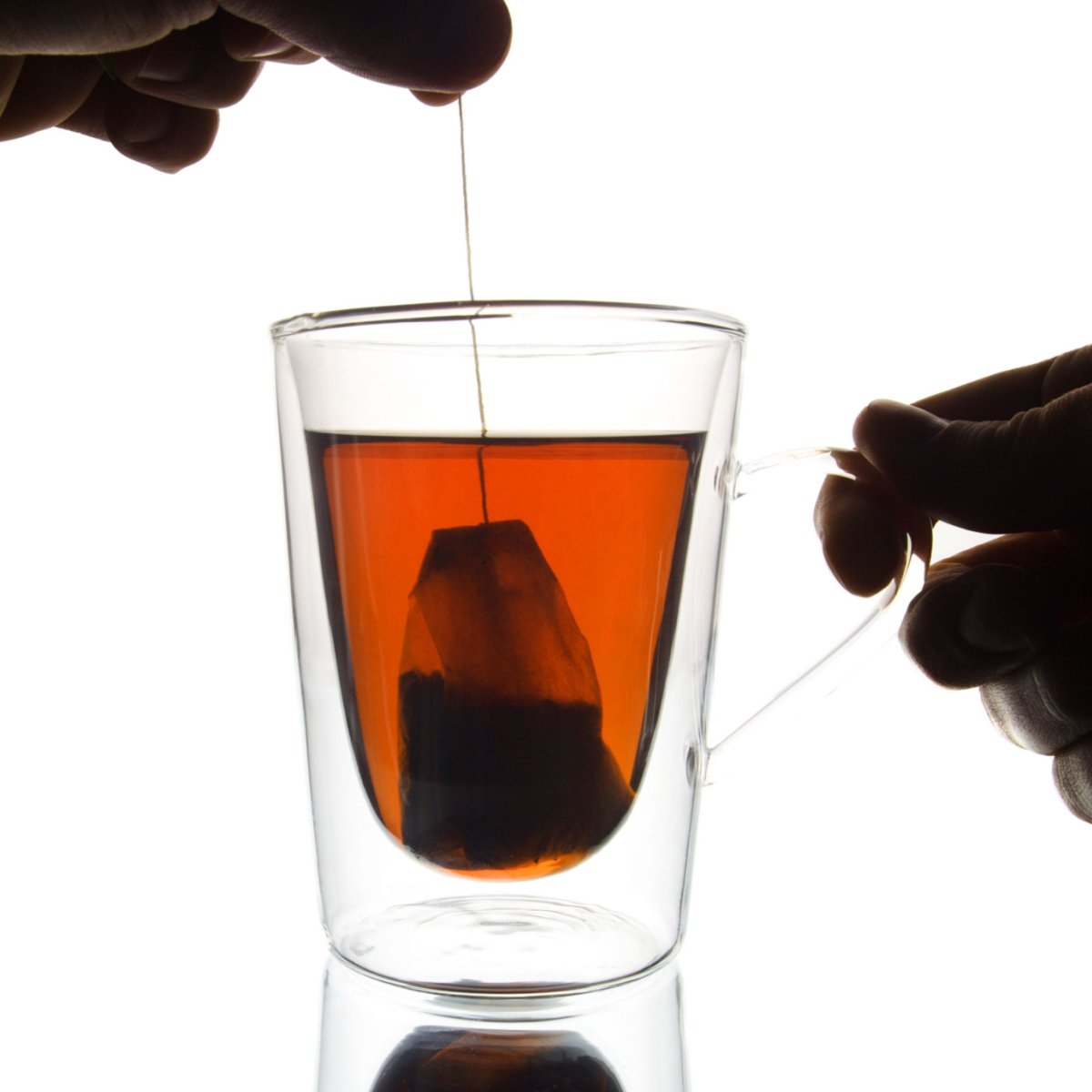
Most teas are slightly acidic; black tea has a pH of 6.37, while most herbal teas have a pH of 6.5. However, there are less acidic teas, like green and white tea, with pH levels ranging from 7 to 10.
Even though some teas are slightly acidic, they are not strong enough to hurt your teeth. However, some people with gastroesophageal reflux may experience acid reflux symptoms if they drink these teas.
Read on as I discuss everything about your favorite drink's pH. So, is your tea acidic?
Table of Contents
Tea pH: Is Tea Alkaline or Acidic?
Black tea, the most used tea, has a pH of 6.37, making it slightly acidic. Black tea is fully oxidized, making it more acidic than most.
However, different teas have different pH levels, which means that some are less acidic than others, and there are also alkaline teas, like green tea and white tea.
The pH level of teas depends on the maturity of the leaves used to make the tea; the more mature the leaves, the higher the oxidation, and the more acidic the tea becomes. Another factor to consider is concentration; the more acidic the tea leaves you use, the lower the pH.
Despite being slightly acidic, tea is still less acidic than coffee (pH 5) and carbonated drinks (pH 2.5 to 3.5). While tea consumption won't directly affect your stomach acid, this depends on how often you drink tea.
Tea also contains antioxidants and caffeine to stimulate energy while boosting the immune system.
What Is pH And Why Does It Matter?
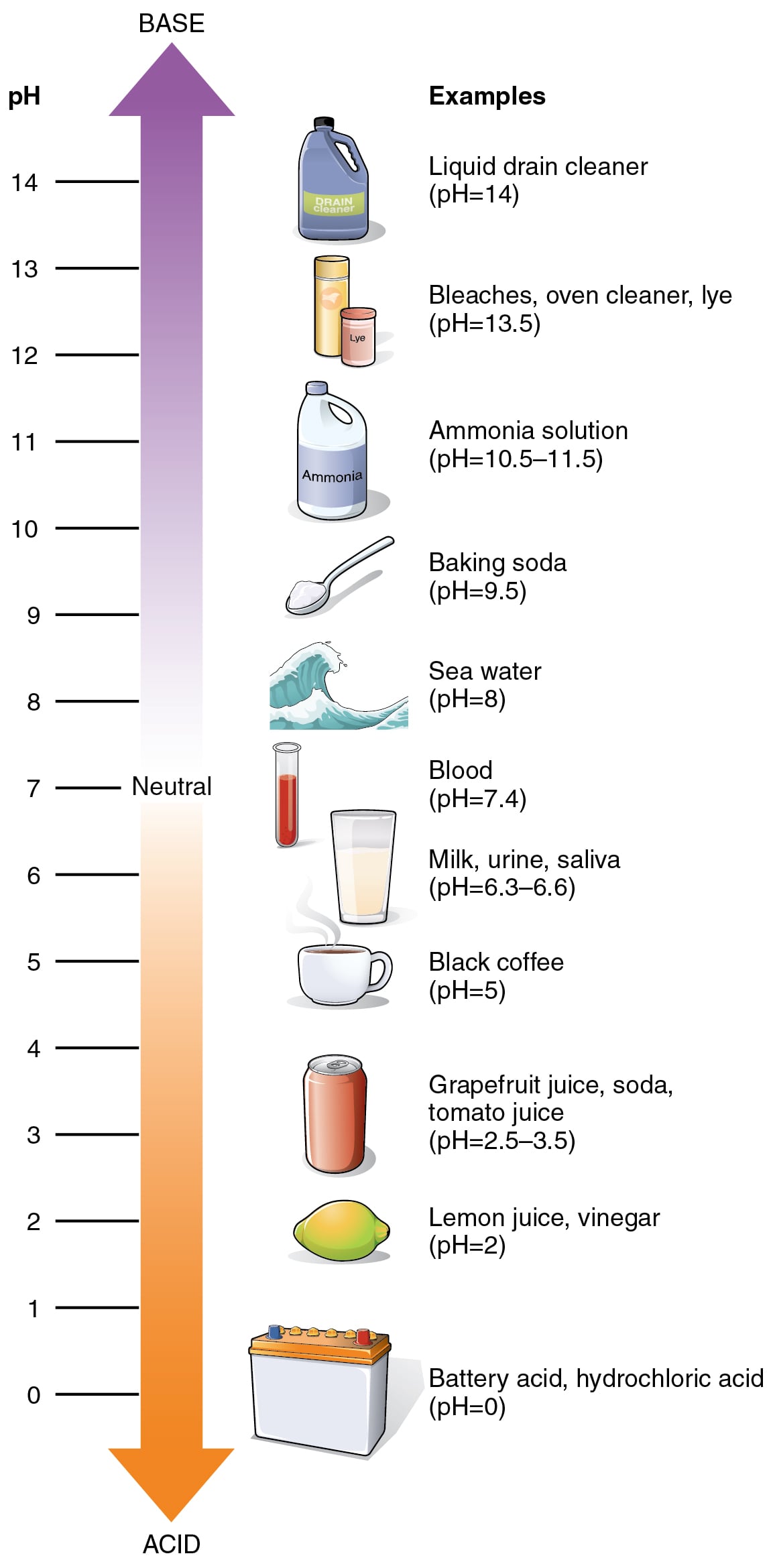
The term "pH" is the measure of acidity or alkalinity of a liquid solution. A pH of 7 is considered neutral; anything below 7 is considered acidic, and anything above 7 is considered alkaline.
When ranging the acidity or alkalinity of a liquid, the lower the value, the more acidic, and the higher the value, the more alkaline.
People keep track of their acid content due to medical conditions such as hyperacidity and gastroesophageal acid reflux.
People also believe that increased intake of acidic foods and drinks leads to changes in the body's functions.
Know Your Tea: Is Your Favorite Tea Acidic?
Different teas have different pH levels, and this section will discuss whether your favorite tea drink is acidic or alkaline.
Is Black Tea Acidic?
Black tea has a pH of 6.37, making it slightly acidic. However, this depends on how many black tea leaves you use and the maturity of the leaves.
Black tea's pH can go down to a 4.9 acidity level, but this usually happens when you make extra concentrated black tea or steep the tea bag or tea leaf for too long.
Black tea is acidic because it has oxalates, tannins or tannic acid, and citrates in it. As a rule of thumb, the more “tea” your drink tastes, the more acidic it is.
Is Green Tea Acidic?
The pH level of green tea is between 7 and 10, which makes it neutral compared to alkaline tea. Most green teas have a pH of 7.2 to 7.5, making them slightly alkaline and safe for people with GERD and hyperacidity.
Unlike black tea, green tea becomes more alkaline when concentrated. If you're a green tea drinker, you shouldn't be worried about your dental health; green tea is a safe drink and even protects your teeth from damage.
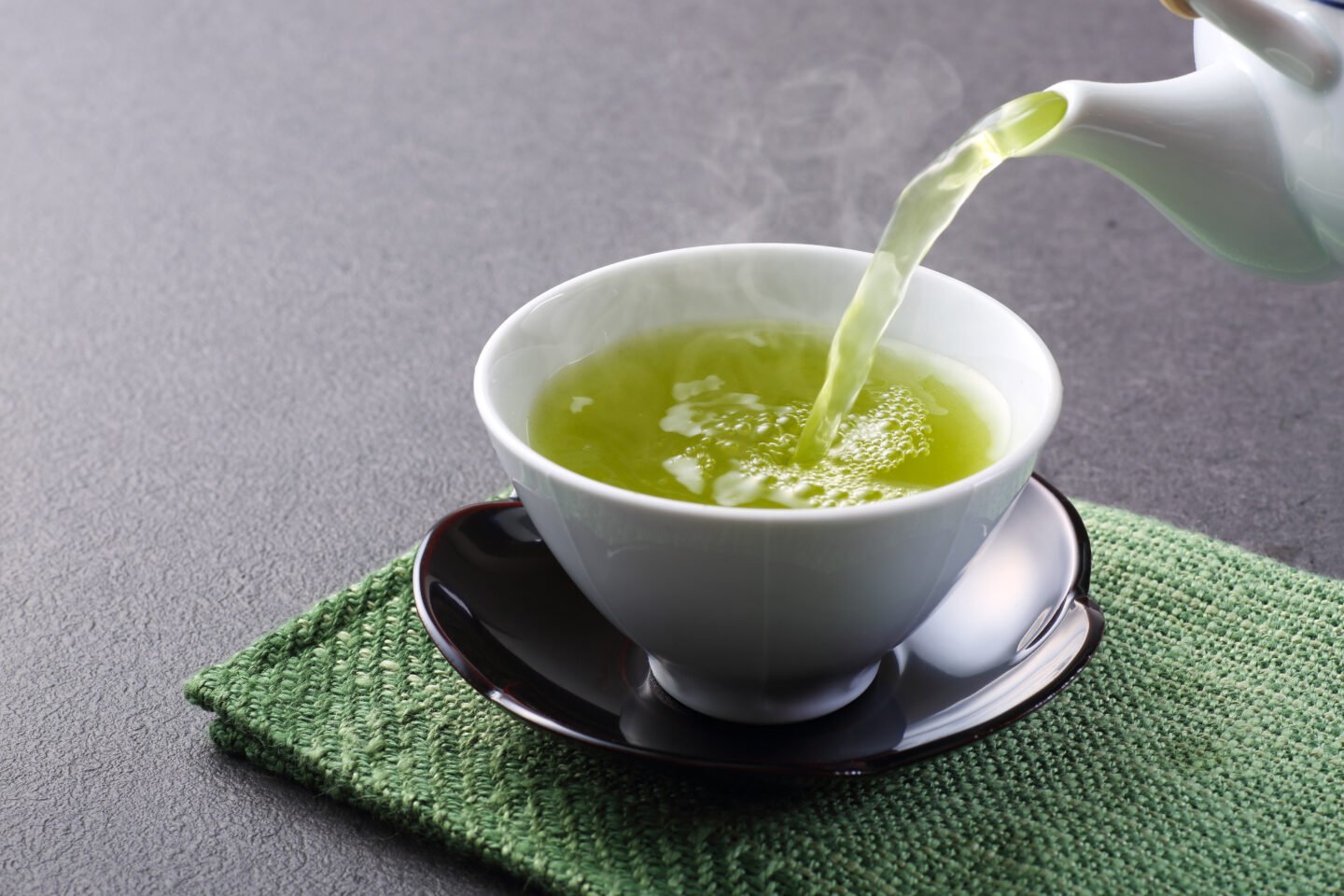
Green tea also has a number of health benefits, such as helping you lose weight, lowering your risk of cancer and heart disease, and making your brain work better.
However, some people don't tolerate green tea very well and experience an upset stomach.
Is White Tea Acidic?
White tea has a pH of 8 to 10, making it alkaline and safe for people with GERD. Although white tea comes from the same plant as green tea, black tea, and oolong tea, they are the youngest leaves harvested during the season, making them less oxidized.
Although white tea is one of the safest teas for hyperacidity, it is also one of the most expensive types of tea on the market due to its rarity.
Is Yellow Tea Acidic?
Yellow tea has a pH of anywhere from 6.5 to 8, making it alkaline. Yellow tea is the rarest tea in the world as it undergoes fermentation. Despite the fermentation process, yellow tea still retains its alkalinity.
Yellow tea offers a more mellow taste than green tea, but it is one of the most expensive teas.
Is Oolong Tea Acidic?
Oolong tea has a pH of anywhere from 5.5 to 8, depending on how it's made. Even though green tea and oolong tea come from the same plant, oolong tea is oxidized, which makes it a little bit acidic.
Regarding measuring tea acidity, here's a simple tip: Processing increases tea acidity. Fresh leaves like green tea are more alkaline, while processed leaves like black tea and oolong tea are more acidic.
Is Earl Grey Tea Acidic?
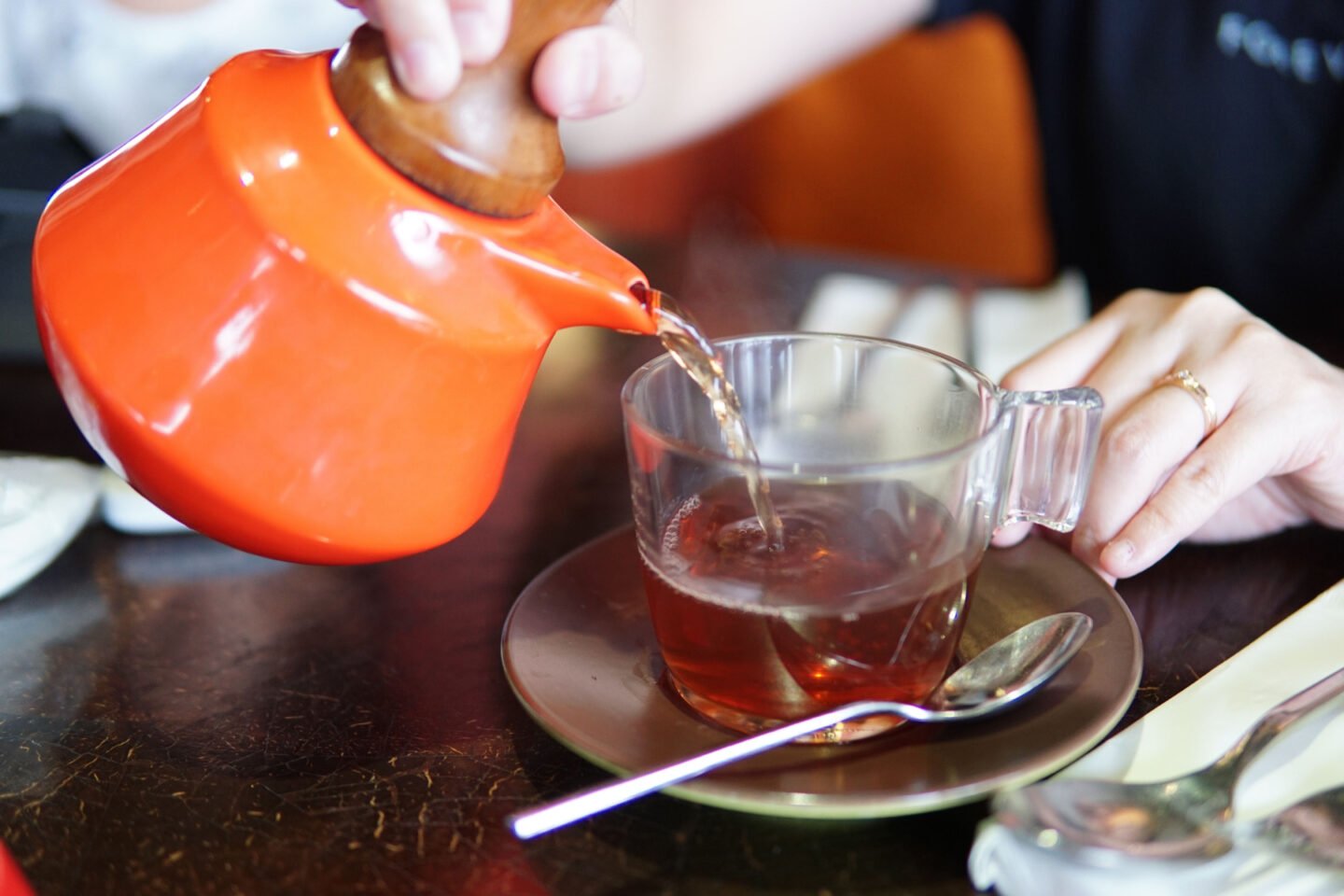
Earl Grey tea has a pH of 4.5, making it acidic. Earl Grey tea is made from black tea, but it usually has bergamot essential oil in it, which has citric acid and a pH of 2.2 to 2.8. This brings the acidity of the tea all the way up to 4.
Due to the usage of bergamot oil in Earl Grey tea, people also call it bergamot tea.
Is Herbal Tea Acidic?
Herbal tea is the general term used for tea made from leaves, flowers, and spices steeped in hot water. These types of tea often come in tea bags or as loose leaf tea.
Some of the most famous types of herbal tea are:
- Chamomile tea - pH of 6-7; slightly acidic.
- Peppermint tea - pH of 6-7; slightly acidic.
- Mint tea - pH of 6-7; slightly acidic.
- Ginger tea - pH of 7-7.5; slightly alkaline.
- Lavender tea - pH of 8-9; alkaline.
- Hibiscus tea - pH of 9; alkaline.
- Butterfly pea tea - pH of 6-7; slightly acidic.
- Lemongrass tea - pH of 5.8-6.3; slightly acidic.
- Rooibos tea - pH of 9; alkaline.
- Lemon tea - pH of 3; highly acidic.
Is Matcha Acidic?
Most matcha drinks have a pH of 9, making them alkaline. Matcha comes from the same plant as green tea but is shade-grown for weeks before harvesting, giving it its vibrant green color and alkaline pH.
Like green tea, matcha has a lot of antioxidants that help your health in many ways, like giving you more energy, lowering your blood pressure, and lowering your risk of getting cancer.
Is Fruit Tea Acidic?
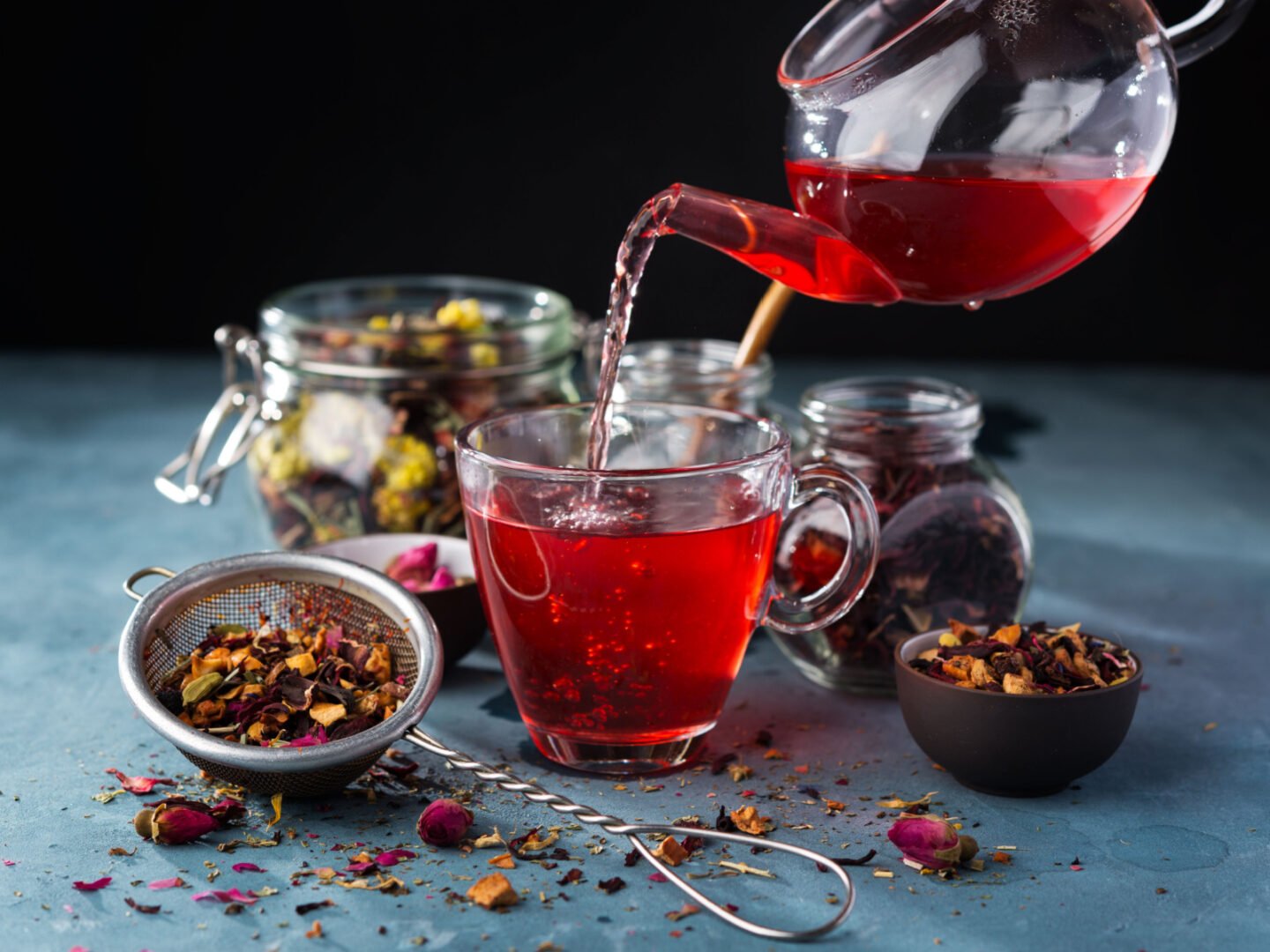
Fruit tea acidity is more complicated, as different fruits have different pH levels and various fruit teas use different tea bases.
There are a few standard tea bases in fruit teas: black tea, green tea, oolong tea, and herbal teas like chamomile tea, hibiscus tea, and peppermint tea.
The pH level of fruit teas depends on the tea base used and the fruit juice added to the drink.
Is Iced Tea Acidic?
Most iced tea products sold in grocery stores have a pH of 4, making them acidic. Moreover, if you like adding extra lemon juice to your iced tea, this brings the pH level even lower.
Milk Tea pH: Is Milk Tea Acidic?
Most milk tea products have a pH of 6.5 to 6.9, making them slightly acidic. Most milk tea flavors available in milk tea shops contain black tea as the base, which is slightly acidic in itself.
Moreover, although milk has a pH of 6.7 to 6.9, it does not produce acid unless it ferments.
Tea Vs. Coffee: Which is More Acidic?
Black tea has a pH of 6.37, while regular coffee has a pH of 4.5 to 5, making it more acidic than tea.
Unlike tea, which becomes more acidic once processed, light roast coffee is more acidic than dark roast.
While both drinks offer antioxidants, coffee stains the teeth and increases the risk of tooth decay, while tea, especially green tea, protects the teeth by preventing inflammation.
Is Tea Bad for Your Teeth?
Unlike most beliefs, tea does not damage your teeth. Instead, tea helps prevent cavities by lowering the amount of acid and bacteria in your mouth.

However, this depends on your tea consumption frequency and what type of tea you drink. Green tea is the best tea for maintaining oral hygiene, as it does not stain like black tea.
Related Questions
Tea consumption does not increase stomach acid content. In fact, some types of tea calm the gut and help relieve constipation.
Green tea has a pH of 7 to 10, making it the most alkaline tea. Matcha has a pH of 9, which is also alkaline.
Green tea is thought to be the healthiest because it isn't acidic and has many health benefits, such as helping you lose weight, lowering your risk of cancer and heart disease, and making your brain work better.

Leave a Reply